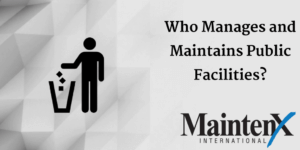
Let’s face it; construction projects are expensive, confusing, and difficult to properly budget and keep on schedule. Because a such projects are always changing, any construction project will need people with real-world knowledge about working with different types of teams to meet the project’s goals. Below are some tips to get you started.
Details, Details, Details
Getting all the information in order is the foundation for a successful construction project. With proper background you can predict possible risks, foresee problems, and plan efficiently.
Create milestones that you can actually track over the construction timeline. Make sure everyone involved with the building work knows local, state, and federal building and material codes.
Communication is Key
Good communication is important in any construction project. It can vastly improve teamwork and group cohesion and create a baseline for streamlined collaboration across the board.
Contingency Plans
There are a lot of things that can slow down a building project. Carefully go over your timeline and predict which potential risks could get you off schedule. Crafting contingency plans that can easily be executed will go a long way in mitigating and resolving setbacks before they rear their ugly heads.
With the high workload and stress involved with any construction project, good planning and measurable goals will keep you on track. Hiring experienced contractors, staying aware of all aspects of your project, and keeping a watchful eye on meeting milestone deadlines will help get you to project planning success.










